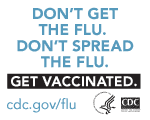CDC Features
Residential Fire H.E.L.P.
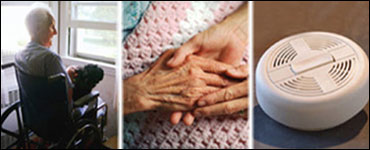
Everyday activities, such as making a cup of tea and keeping your house warm, can become more risky for older adults. But with some simple precautions, they can be done safely. These are the messages that the Residential Fire Homebound Elderly Lifeline Project (Fire H.E.L.P.), which is currently being pilot-tested in five Texas communities, is designed to share.
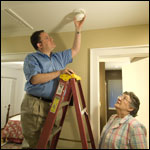
When compared with the rest of the population, older adults are at much higher risk for residential fire deaths. Smoke alarms decrease the chances of dying in a house fire by up to 50 percent. However, one-quarter of US households lack working smoke alarms, and the people least likely to have an alarm are often those at high risk of being injured in a fire.
To reduce fire-related injuries and loss of life and property among homebound older adults, CDC has partnered with the Meals On Wheels Association of America (MOWAA) and the International Association of Fire Chiefs (IAFC) to develop and implement Fire H.E.L.P. This new project has three major components:
• Home screening for smoke alarms
• Education on fire risk factors and the importance of smoke alarms and escape planning
• Installation and periodic testing of free smoke alarms with long-life lithium batteries
Meals On Wheels (MOW) programs have regular contact with homebound elderly clients through the home delivery of meals. For the Fire H.E.L.P. project, MOW staff and volunteers also will use these visits to provide their clients with the knowledge and skills needed to prevent and escape a residential fire. In addition, free smoke alarms will be installed by local fire departments for those clients who need them.
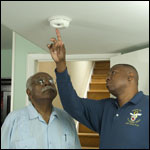
The Fire H.E.L.P. project is being pilot-tested through the following MOW programs in Texas:
• Meals On Wheels of Tarrant County Inc., Fort Worth
• Christian Senior Services, San Antonio
• Meals On Wheels of Abilene, Abilene
• Meals for the Elderly, San Angelo
• Meals On Wheels of Johnson and Ellis Counties, Cleburne
If the pilot project is successful, MOWAA hopes to replicate it throughout Texas and ultimately across the country.
CDC assisted in the development of the Fire H.E.L.P. training curricula to teach MOW staff and volunteers how to conduct home assessments and to train others to do so. CDC also created educational tools and materials to instruct MOW clients in basic fire safety and prevention.
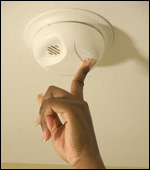
The Fire H.E.L.P. project continues CDC’s work in residential fire-related injury prevention. Since 1998, CDC has funded smoke alarm installation and fire safety education programs in high-risk communities—those with fire death rates higher than state and national averages and median household incomes below the poverty level. As of September 2007, an informal sample of program homes found that 1,589 lives potentially have been saved thus far. Program staff have enrolled nearly 196,000 homes and installed nearly 350,000 long-lasting smoke alarms in high-risk homes, targeting households with children ages five years and younger and adults ages 65 years and older.
According to Julie L. Gerberding, M.D., CDC Director, the partnership between MOWAA, IAFC, and CDC blends the strengths of each organization to help reduce residential fire-related injuries and deaths. "We are pleased to add CDC's fire prevention expertise to the crucial services that Fire H.E.L.P. will provide to these communities. Installing working smoke alarms is a vital step to creating a safe and healthy home environment for the homebound elderly."
Additional Information
-
Residential Fire H.E.L.P.
Provides an overview of the Fire H.E.L.P. project.
- Podcast
A message about the Residential Fire H.E.L.P. partnership from Dr. Ileana Arias, Director of the National Center for Injury Prevention and Control.
- Residential Fire-Related Injuries
Provides an overview of the problem of residential fire-related injuries in the United States, including risk factors and costs.
- Prevention Tips
Presents home fire prevention tips for you and your family.
- CDC Activities
Highlights CDC-sponsored projects aimed at preventing residential fire-related injuries and deaths.
- Meals On Wheels Association of America*
The Meals On Wheels Association of America (MOWAA) is the oldest and largest organization in the United States representing those who provide meal services to people in need.
- International Association of Fire Chiefs*
Established in 1873, the International Association of Fire Chiefs (IAFC) represents the leadership of over 1.2 million firefighters.
Page last updated: November 9, 2007
Content Source: Divison of Unintentional Injury Prevention, National Center for Injury Prevention and Control
Content owner: National Center for Health Marketing
URL for this page: www.cdc.gov/Features/FireHELP
*Links to non-federal organizations are provided solely as a service to our users. These links do not constitute an endorsement of these organizations or their programs by CDC or the federal government, and none should be inferred. CDC is not responsible for the content of the individual organization Web pages found at these links.

